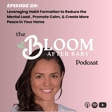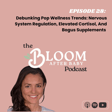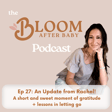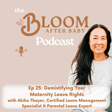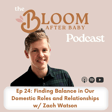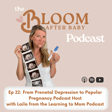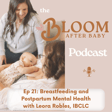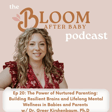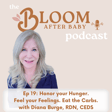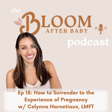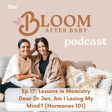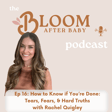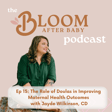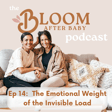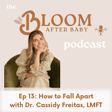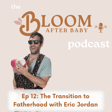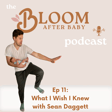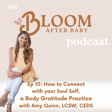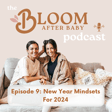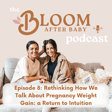
23: How to Parent Yourself First, with Bryana Kappadakunnel, LMFT
Founder of Conscious Mommy, Bryana Kappadakunnel, LMFT, joins us today, speaking with pure passion about what it means to parent with consciousness, and what it means to "Parent Yourself First" <----- her new book releasing SOON!
You can connect with Bryana on instagram @consciousmommy and her website www.consciousmommy.com, where she hosts an online community of new parents striving to be the calm, confident, and connected parents they want to be.
In this episode, you'll learn about:
- What it means to parent yourself first
- The 3 Cs of effective discipline that she teaches to the families she works with
You can learn more about Rachel's California-based group therapy practice and how you can work with her at www.racheldaggettlmft.com or on instagram @rachelscouch
Follow along with Bloom After Baby for all things maternal mental health: Instagram @bloomafterbaby and website bloomafterbaby.com
** Don't forget to leave a rating and review if you enjoy this Podcast! Thank you so much! 🥰 **
*Please note that this podcast is intended for educational purposes only, and is not a substitute for seeking individualized care from a mental health or medical professional.
Parenting Millenial Parents Motherhood Fatherhood Therapy
